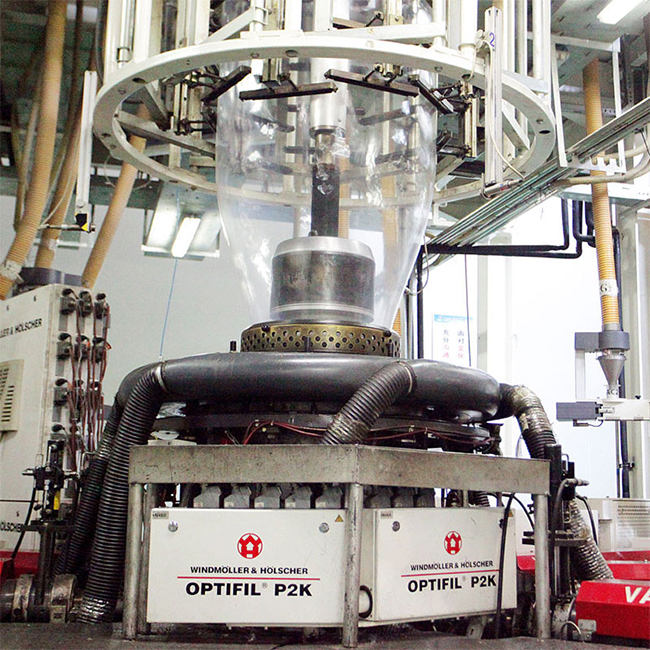The environmental protection industry is a comprehensive emerging industry that crosses industries, fields, and regions, intersects and penetrates with other economic sectors. Therefore, some experts suggest that it should be listed as the "fifth industry" after the "knowledge industry". Since 2016, China has frequently implemented policies in the field of environmental protection, including the 13th Five Year Plan, the 10th Soil and Water Policy, the 10th Atmospheric Policy, etc. On December 14th, Environmental Protection released another draft for environmental protection opinions, indicating the intensity of environmental protection policies.
It is reported that on December 14th, the Ministry of Environmental Protection released the "13th Five Year Plan for Development of National Environmental Protection Standards (Draft for Soliciting Opinions)", which systematically formulated the construction drawings of three major pollution prevention and control action plans. At the same time, it was proposed that approximately 250 environmental protection standard projects will be launched during the "13th Five Year Plan" period.

The opinion draft points out that during the 12th Five Year Plan period, a total of 493 national environmental protection standards were issued. Among the current environmental protection standards, there are 15 environmental quality standards, 161 pollutant discharge standards, environmental monitoring specifications (including environmental monitoring analysis method standards, environmental monitoring technical specifications, environmental monitoring instrument technical requirements, 1001 environmental standard samples, and 21 environmental basic standards (including environmental basic standards and standard formulation and revision technical specifications), 499 management standards.
The opinion draft proposes that during the 13th Five Year Plan period in China, approximately 250 environmental protection standard projects will be launched, and about 30 key environmental protection standard implementation evaluations will be promoted. It is also planned to conduct more than 3000 national level training sessions and drive more than 15000 local training sessions.
In terms of soil pollution, it is required to implement the requirements of the State Council's "Ten Articles on Soil" and release the soil environment of agricultural and construction land before the end of 2017.
In terms of water pollutant emissions, it is required to implement the requirements of the "Ten Water Regulations" and prioritize supporting relevant emission standards around key areas of water pollution prevention and control such as industrial sources, domestic sources, and agricultural sources. Based on the principles of improving the quality and efficiency of standard formulation and revision, strengthening coordination between standards, and facilitating standard implementation, we will integrate water pollutant discharge standards for industries such as pesticides, food processing, alcohol, inorganic pigments, inorganic phosphorus chemicals, and electronics, and optimize the water pollutant discharge standard system. Actively supporting the implementation of new environmental management systems such as pollution discharge permits, researching the inclusion of technical requirements such as standard determination and standard emission accounting in emission standards, improving the technical content of standards, and improving the scientific and applicability of standards. On the basis of 64 standards at the end of the 12th Five Year Plan period, a comprehensive and focused water pollutant discharge standard system consisting of about 90 standards has been developed and revised.
In terms of air pollution, it is required to implement the relevant requirements of the "Ten Articles of Atmosphere", and prioritize supporting relevant air pollutant emission standards in key areas of atmospheric environmental management such as volatile organic matter pollution, high energy consumption and high pollution industries, non-point source pollution, and mobile source pollution. Based on the principles of improving the quality and efficiency of standard formulation and revision, strengthening coordination between standards, and facilitating standard implementation, we will integrate air pollutant emission standards for industries such as inorganic phosphorus chemical, inorganic pigments, and fertilizers, and optimize the standard system. The implementation of the supporting pollution discharge permit system, research on incorporating technical requirements such as standard determination and standard emission accounting into emission standards, improving the technical content of the standards, and improving the scientific and applicability of the standards. On the basis of 47 atmospheric fixed source and 26 mobile source standards at the end of the 12th Five Year Plan period, a comprehensive and focused air pollutant emission standard system consisting of approximately 70 atmospheric fixed source and 40 mobile source standards has been developed and revised.
In terms of solid waste, it is required to further improve the pollution control standard system for the entire process of solid waste collection, storage, treatment and disposal, as well as resource regeneration and utilization, in accordance with the requirements of strengthening the treatment and disposal of industrial waste in the "Soil Ten Articles" and in accordance with the principles of full process management and risk prevention. Revise pollution control standards for general industrial solid waste storage and disposal sites, and improve control requirements for anti scattering, anti loss, and anti leakage. Develop and revise pollution control standards for solid waste such as leather waste and coal chemical waste, and promote the reduction and harmless treatment and disposal of solid waste in the industry. Revise pollution control standards for hazardous waste storage, landfill, incineration, and other treatment and disposal, and strengthen the entire process management of hazardous waste. Revise the pollution control measures for the treatment and disposal of medical waste and waste containing polychlorinated biphenyls, and improve pollution control requirements for key environmental risk control links. Develop pollution control standards for bio organic matter composting and promote the comprehensive utilization of solid waste.
The constraints and guidance of policies are the foundation for the healthy development of an industry, and also indicate the direction of its development. Although the "13th Five Year Plan for the Development of National Environmental Protection Standards (Draft for Comments)" is only a draft for comments, the 250 standards and various requirements have put forward many requirements for the future environmental protection industry. As for how to seek development under policies, I won't say much. For those who want to know, please refer to the 2016-2021 in-depth analysis of the environmental protection industry and the "13th Five Year Plan" development guidance report.